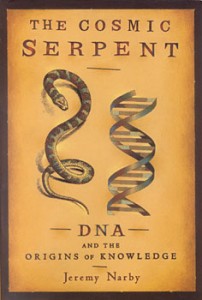 In book XII of Metaphysics, Aristotle is on a roll. He has already figured out the causes and workings of the earthly world and, by book’s end, will have mounted the summit of God—the prime mover, for the love of whom all things move. The final step before this, however, lies with the stars. At the end of his reasoning about them, Aristotle makes a triumphant claim:
In book XII of Metaphysics, Aristotle is on a roll. He has already figured out the causes and workings of the earthly world and, by book’s end, will have mounted the summit of God—the prime mover, for the love of whom all things move. The final step before this, however, lies with the stars. At the end of his reasoning about them, Aristotle makes a triumphant claim:
Our forefathers in the most remote ages have handed down to their posterity a tradition, in the form of a myth, that these bodies are gods, and that the divine encloses the whole of nature. The rest of the tradition has been added later in mythical form with a view to the persuasion of the multitude and to its legal and utilitarian expediency; they say these gods are in the form of men or like some of the other animals, and they say other things consequent on and similar to these which we have mentioned. But if one were to separate the first point from these additions and take it alone-that they thought the first substances to be gods, one must regard this as an inspired utterance, and reflect that, while probably each art and each science has often been developed as far as possible and has again perished, these opinions, with others, have been preserved until the present like relics of the ancient treasure. Only thus far, then, is the opinion of our ancestors and of our earliest predecessors clear to us.
This passage I offer as one of the great early moments in the study of religion. Aristotle’s ecstasy is one that would be repeated many times since, driving scholars to scour the depths of beliefs of people they deem less enlightened. They can celebrate the roundabout truth of such beliefs, but only once framed in the latest and greatest science. Such a discovery is so exciting because it testifies both to the intrinsic wisdom of the human race and to the magnificent uniqueness of the new.
I think of Feuerbach, who proclaimed (to Marx’s delight) that the essence of Christianity would only be fulfilled in its translation to scientific atheism. Or Mircea Eliade, who taught us to distill the real core of the religions by methodically comparing ancient intuitions the world over.
At home in Virginia recently, a new friend shared a rich and peculiar book: Jeremy Narby’s The Cosmic Serpent: DNA and the Origins of Knowledge, published in 1998 by Putnam. It relishes fully in Aristotle’s ecstasy (indeed, with Eliade in hand), bringing to it all the genuine originality, as well as wishful thinking, that accompany the genre in each incarnation.
Narby is an anthropologist by trade, and at the outset we find him doing fieldwork among the Ashaninca people of the Peruvian rainforest. He studies, with activist ambitions, their sustainable stewardship practices and their astonishing medical knowledge. But then he begins to ask where it all comes from. The Western hypothesis—that some trial-and-error process of natural selection, over thousands of years, managed to turn out some beneficial habits and understanding—doesn’t satisfy him. With no other alternative, he begins to take the Ashaninca shamans’ own explanation at face value: they get their knowledge from drug-induced hallucinations which, incidentally, are filled with serpents.
 This sets Narby off on an adventure of scholarly gumshoeing. He finds that these serpents show up everywhere in “primitive” mythologies—often a pair of them intertwined. So what would intertwined snakes have to do with life-giving knowledge? DNA! The double helix! Thus he sets off on a grand pseudo-scientific journey of mystical hypothesizing. Could DNA be emitting low-level but detectable radio waves that then show up in hallucinations? Could this be The Secret of Consciousness? Whatever they are, Narby intuits, they sure didn’t come from any old Darwinian evolution. No; without a doubt, we’re talking extraterrestrial origin.
This sets Narby off on an adventure of scholarly gumshoeing. He finds that these serpents show up everywhere in “primitive” mythologies—often a pair of them intertwined. So what would intertwined snakes have to do with life-giving knowledge? DNA! The double helix! Thus he sets off on a grand pseudo-scientific journey of mystical hypothesizing. Could DNA be emitting low-level but detectable radio waves that then show up in hallucinations? Could this be The Secret of Consciousness? Whatever they are, Narby intuits, they sure didn’t come from any old Darwinian evolution. No; without a doubt, we’re talking extraterrestrial origin.
(I asked Robert Temple about this, since his classic The Sirius Mystery also deals with extraterrestrial reptilians as the secret of life. He had never heard of Narby’s book but immediately ordered it with great interest.)
By the end of The Cosmic Serpent, I felt perfectly dizzy. Not enough, however, to be terribly convinced that Narby is on to something that our rationalism-blinded science has missed entirely, as he claims. He sells short the power—a power almost mystical in its mundaneness—of evolutionary processes. DNA could have evolved, as could have human consciousness, as could have a vast supply of indigenous knowledge that is the envy of the most advanced pharmaceutical labs. There is plenty of evidence in computer simulation studies, for instance, to suggest this.
Still, Narby is right to listen to the shamans. Just “evolution” is not the whole story of how they obtained their knowledge (or even the origin of DNA), only the vaguest outline of one. The development of science, too, has been a process of evolution, ever accumulating. But what makes science work, and what makes shamanism work, is not evolution alone but the specific, complex, cultural practices that drive it—whether they be Ph.D. programs or visions of snakes. These things matter absolutely. They give rise to knowledge that couldn’t be created in any other way. Evolution should not be a way to write off shamanic visions but a way to understand their significance.
The evolution of cultures often works in ways that try to cover their own tracks, that act as if their knowledge came from nowhere, or nowhere normal, when it really came from somewhere, and everywhere is normal. In each generation, in the name of the new and of self-reliance, we claim values as uniquely ours that in fact have quietly passed on and on through history. I am working now to argue that the proofs for the existence of God, probably like the shamans’ visions, are an act of covering up the real origins of our knowledge—pretending to have discovered for ourselves the things we actually, at least in outline, learned from our ancestors. This is essentially what Pierre Bourdieu spoke of as misrecognition. Despite the word’s pejorative connotation, it must be remembered that social transactions require misrecognition to function. The cover-ups cannot quite be done away with. They are a part of the social and intellectual substance in which we live.
Both Narby and Aristotle, casting their glances back and forth between ancient knowledge and the newest of the new, cannot help but erode the distinction between the two. We are always natives and always moderns. Just when some possibility arises of knowing the real truth at least, it can reveal itself to be a hollow shell, an invention of crass pragmatism just like what it was meant to replace.